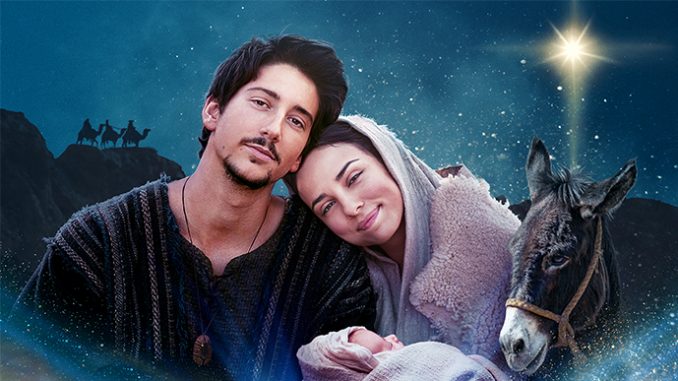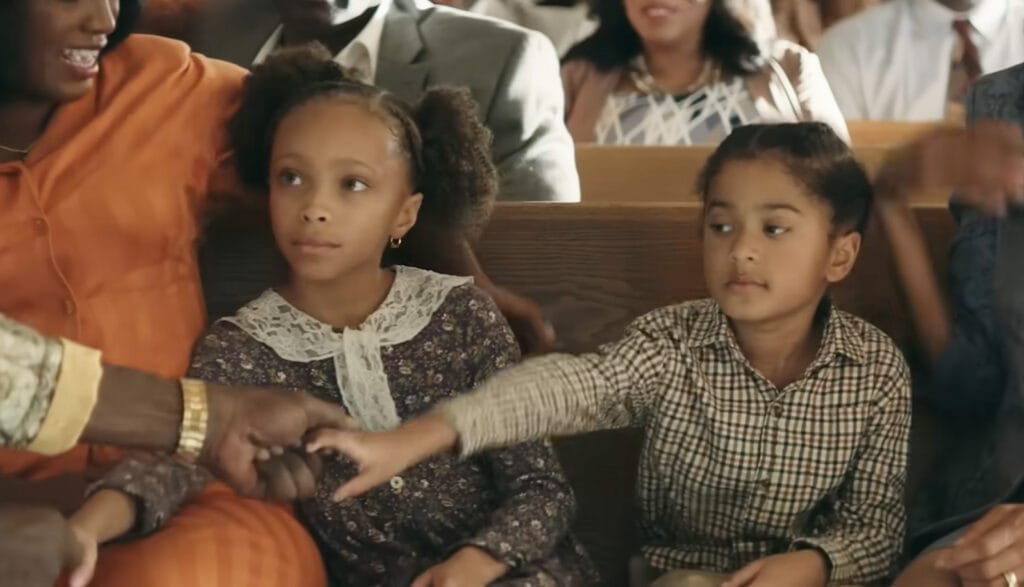How do we find our identity when the truth of our past is shaken? This film explores the discovery of a painful secret and asks viewers to consider where true worth and healing are found when life doesn’t go as planned.
A Search for Origins
“October Baby” begins with college freshman Hannah preparing for her theatrical debut. In the opening moments on stage, she unexpectedly collapses in front of the audience.
The incident leads to a series of medical tests that point to complications from her birth. Her doctor is baffled by her symptoms, which seem disconnected and severe for someone her age.
The tests reveal a latent infection and other markers that suggest a traumatic birth, prompting her parents to intervene. This medical crisis forces her parents, Jacob and his wife, to reveal a life-altering secret.
They confess that Hannah is not their biological child. She was adopted after surviving a failed abortion attempt.
This news shatters Hannah’s sense of self, and she feels betrayed by the people she trusted most. The confession provides a sudden, unwelcome context for the health problems that have defined much of her existence. This news explains the health issues, including asthma and epilepsy, that have affected her throughout her life.
Feeling bewildered and angry, Hannah struggles to process the information. She feels that her life has been built on a lie and becomes determined to find answers about her origins.
She wants to find her birth mother to understand who she is and why the decision was made. This need for answers creates a rift between her and her adoptive parents, who are afraid of what she might discover.
She becomes convinced that finding the woman who gave her up is the only way to understand her own story. Hannah turns to her longtime friend, Jason, for support.
He and his friends are planning a spring break road trip to New Orleans. Hannah seizes the opportunity to join them and diverts their trip to Mobile, Alabama—the city listed on her birth certificate.
Must Watch: Fireproof Movie Review
The group, including the comic relief characters Bmac and Truman, piles into a van for the trip. Her overprotective father, Jacob, is strongly against her going because he fears for her health and the distress she might face.
Despite his objections, Hannah sets off with her friends. Her quest leads her to an abandoned hospital and eventually to a nurse who was present at her birth.
The nurse provides harrowing details about the procedure and gives Hannah a crucial piece of information that helps her continue her search. The road trip provides moments of levity with her friends that stand in opposition to the gravity of her search.
Along the way, the relationship between Hannah and Jason deepens as he provides steady support. Hannah eventually locates her birth mother, but their meeting proves to be tense and sorrowful.
This confrontation compels Hannah to grapple with her feelings of anger, rejection, and self-worth, and she begins to search for a path toward peace and forgiveness.
Forgiveness in the Face of Rejection
“October Baby” explores forgiveness as the key to spiritual freedom. After Hannah learns the truth of her birth, she feels trapped by anger and a sense of worthlessness.
She writes in her journal and questions the idea that “the truth will make you free,” as it initially brings her more pain. The film’s spiritual core is most evident in the cathedral scene.
A priest finds Hannah and listens to her story. She admits she feels hatred for herself, her adoptive parents, and her birth mother.
The priest quotes the Apostle Paul from Colossians and explains that because we are forgiven by Christ, we have the power to forgive others.
Don't Miss: Soul On Fire Movie Review
He tells her, “Only in forgiveness can you be free.” This conversation marks a turning point for Hannah. She begins to understand that forgiveness is about releasing the burden of hatred she carries, rather than excusing the wrong done to her.
Her focus shifts from seeking answers to finding peace. The film also explores the theme of God’s redemptive power.
Hannah’s father, Jacob, struggles with his own faith after the trauma surrounding Hannah’s infancy. His struggle runs parallel to hers, as he must learn to let go of his overprotective nature and trust God with his daughter’s life.
Their eventual reconciliation shows the healing that comes from honest communication and forgiveness within a family. Through Hannah’s story, the film argues that every life has inherent value, a truth that exists apart from our origins or how others see us.
Her path from feeling unwanted to embracing her life is a picture of finding one’s true identity in spiritual truth, apart from worldly circumstances.
Finding Freedom and Trust
One of the main lessons from “October Baby” is the power of choosing to forgive. When Hannah finally meets her birth mother, she is rejected once again.
This painful moment could have solidified her anger; instead, it becomes the catalyst for her to let go of her resentment. In the cathedral, a priest reminds her that forgiveness is a choice we make, and we find the strength to do so through the grace we have received.
Viewers can apply this by reflecting on their own lives and identifying areas where unforgiveness holds them captive. It challenges people to consider whether holding onto past hurts is worth the emotional cost.
This act of forgiveness is not presented as easy, but as a necessary step for anyone seeking peace. The film suggests that releasing that resentment is the first step toward healing.
Your Next Movie: These 7 Christian Movies Will Radically Change How You Forgive
A second key lesson is about the difficulty and necessity of parental trust. Hannah’s father, Jacob, loves his daughter, but his affection manifests as overprotection.
He reads her journal and tries to control her decisions, all out of fear. His experience teaches an important lesson for parents: there comes a time when you must trust your children to make their own choices and trust God with their future.
This arc demonstrates that parental love must evolve from control to support. It serves as a reminder that children need the space to navigate their own lives, even if it means parents must face their anxieties about the unknown.
His apology to Hannah near the end shows that restoring a relationship sometimes means admitting your own fears and letting go.
A Heartfelt Film with Flaws
“October Baby” received a mixed but often passionate response. Christian viewers and pro-life audiences widely praised the film for its heartfelt and touching story.
They celebrated its ability to tackle the sensitive topic of abortion with a message of forgiveness and hope that avoided overt preachiness. Reviewers frequently pointed to the strong and sincere performances of Rachel Hendrix as Hannah and John Schneider as her father.
Critics often commended the film’s visual quality; its cinematography was considered beautiful and a step above other faith-based productions. The use of soft lighting and thoughtful composition gave the film a polished, professional look that elevated its storytelling.
This aesthetic choice helped ground the dramatic moments and gave the road-trip sequences a scenic quality. The movie won the Grand Jury Prize for Best Fiction Feature at the 2011 Red Rock Film Festival, and this win demonstrated its impact within the independent film circuit.
Read also: 9 Christian Movies You Must Watch in 2025
However, some reviewers pointed out the film’s weaknesses. A common critique was the film’s uneven tone, which shifted awkwardly between lighthearted road-trip scenes and the gravity of Hannah’s search.
Other critics felt the film dipped into melodrama and compared it to a Lifetime movie. Reviewers also cited the heavy reliance on a contemporary Christian music soundtrack to drive emotion as a drawback.
Some viewers found the comic relief from characters like Bmac to be unnecessary and forced. Despite these criticisms, most agreed the film was well-intentioned and effective in conveying its core message to its target audience.
From Music Videos to a Message Movie
The directing duo behind “October Baby,” brothers Jon and Andrew Erwin, were well-known for directing music videos for top Christian artists like Michael W. Smith and Amy Grant before tackling their first feature film. They initially intended to make a noncontroversial football movie.
Their direction changed after they saw a YouTube video of Gianna Jessen, a pro-life activist who survived a saline abortion and lives with cerebral palsy as a result. Her story captivated the brothers and inspired the script for “October Baby.”
They felt the story found them, not the other way around.
Check Out: 7 Must-Watch Christian Movies Based on TRUE STORIES You Wanted Us To Review
The Erwin brothers also received guidance from Alex and Stephen Kendrick, the filmmakers behind successful faith-based movies like “Fireproof” and “Courageous.” The Kendricks urged them to take a leap of faith into feature filmmaking, sharing their industry knowledge to help the new directors find their footing.
The result was a film that aimed to tell a redemptive story without feeling like a sermon, a goal the Erwins felt was key to reaching a broader audience. This partnership was an important step in bringing the independent movie to mainstream theaters.
A Recommendation for the Open-Hearted
“October Baby” is a sincere and moving film that successfully tells a story of identity, forgiveness, and the value of life without resorting to heavy-handed preaching. The film’s tonal shifts between road-trip comedy and its dramatic core can feel inconsistent, yet the powerful performances and heartfelt message shine through.
It’s a film that will resonate with viewers looking for stories that affirm faith and hope in the midst of pain. The story’s focus on personal discovery and reconciliation gives it a broad appeal beyond its faith-based roots.
You Might Also Like: You Should Know This Before You Watch Full Christian Movie Hacksaw Ridge (Review)
This movie best suits mature teens and adults who can thoughtfully engage with its themes. The film has a PG-13 rating for mature thematic material.
The film discusses abortion. One scene contains a nurse’s verbal description of a traumatic procedure that includes an allusion to dismemberment.
There is no profanity or sexual content, though a character mentions getting drunk and into a fight. For families, the film can be a useful tool for discussing adoption, forgiveness, and the sanctity of life.
Those sensitive to melodramatic elements may find parts of the film challenging, but its redemptive conclusion is worth the watch.
Your Turn
Now, a question for you. A central idea in the film is the link between forgiveness and freedom.
Must Watch: 8 Christian Movies That Unmask the Evil Hiding In Plain Sight
How has forgiveness, either given or received, played a role in your own life? Share your thoughts in the comments below.









10 Full Christian Movies You Can Watch for FREE (Right Now!)
2.8K views